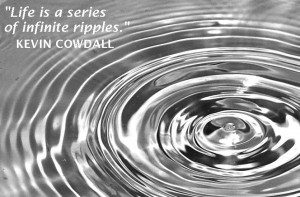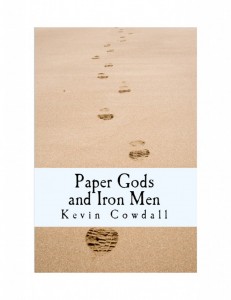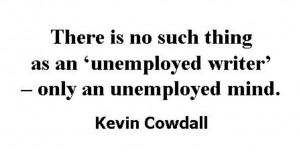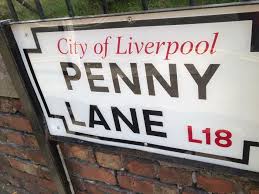Today, I’m delighted to welcome Kevin Cowdall to my blog. Kevin was born in 1959 in Liverpool, England; where he still lives and works.
He developed an interest in writing at an early age – ‘Like most teenagers, I wrote poetry, much of which was of the appalling “Moon In June” type, but I gradually started to get things into print – my first published poem actually appeared, appropriately, in the influential publication, First Time. This, he still says, was one of his proudest moments.

Three small press collections followed; The Reflective Image (1984), Monochrome Leaves (1985) and A Walk in the Park (1990). In all, over 150 poems have been published in magazines, journals and anthologies in the UK, Australia, Canada and across Europe, broadcast on local and regional BBC Radio and featured in several local and national competitions. In 1986, The Writers’ Rostrum produced The Best of Kevin Cowdall, which was awarded a best collection prize at the 1987 National Small Press and Poetry Convention.
Kevin also started writing short stories, a number of which have been published in UK magazines and anthologies and he has edited nine of these into a collection, The Ophelia Garden. He has also completed his first play, Sometimes, a children’s novel, The Dinsdale Fox, and, most recently, a full-length novel, Cosgrove’s Sketches, about the life of an Edwardian Liverpool artist.
Kevin, please tell us how you came to be a writer.
I’ve always been an avid reader, brought up on the classics of childhood and adolescent literature; everything from Enid Blyton’s Secret Seven and Famous Five, through the works of Robert Louis Stevenson, G A Henty, Mark Twain, Jules Verne, C S Lewis, H G Wells, Richard Hughes, Laurie Lee. etc. Add to that the fact as a child in the 1960’s I had the Golden Age of escapism television and it was no wonder I started playing out, and then writing down, adventure stories of my own.
Who gave you your first encouragement as a writer?
My then girlfriend (when I was 18). I dedicated my first completed (unpublished) novel to her; a traditional children’s story entitled The Dinsdale Fox. My first two small press poetry collections were also dedicated to her.
What genre do you generally write in and have you ever experimented with other genres?
I don’t think I have a specific genre. The children’s novel mentioned above was followed by an Arthurian-type epic, Death of A Warrior.
My Kindle book, Paper Gods and Iron Men is a WWII desert survival story and my most recent work, Cosgrove’s Sketches, is the story of an Edwardian Liverpool artist. My play, Sometimes, is a modern tragic-comedy set in the Home Counties – so a pretty mixed bag!

The protagonists in your latest novel are McBride and Poole. What can we expect from them?
Paper Gods and Iron Men centres around two British Army officers during the North African campaign of the Second World War. One, Captain McBride, is a career soldier and member of the Long Range Desert Group: a special force which operates behind enemy lines carrying out reconnaissance and sabotage missions. The other, Captain Poole, is an enlister, having worked as a civic surveyor in civilian life. The two have come together at a temporary aerodrome to be flown out. When the plane is shot down the two are the only survivors. Having scavenged what few supplies they can, they set out across the desert. Paper Gods and Iron Men is, essentially, a story of endurance and survival, of ordinary people in extraordinary situations.
Beyond the simple narrative of events as they unfold, much of the story’s edge is contained in the often tense, sometimes intimate and revealing dialogue between the two. Their conversations, while serving to keep them focused, also explore much of the background of the time and place – the North African campaign, the Arab independence movement, the British, German and Italian positions, army protocol and regulations, etc, etc.
John Irving says that you can’t teach writing. You can only recognise what’s good and say ‘keep doing that.’ Do you think that’s true?
Very! You can teach grammar, structure, composition, whatever – but good writing needs soul, passion and imagination.

Hilary Mantel claims that a Catholic upbringing is the only qualification a writer requires. Do you have any writing qualifications?
Certainly my time at a Catholic (boys) grammar school helped me develop a keen interest in reading and taught me the essential elements of good grammar. I think the key requirements for any writer are patience, self-belief – and a vivid imagination.
Do you think the media gives enough coverage to books?
Absolutely not! There’s barely any publicity, it seems, unless it’s for a ‘celebrity’, (usually meaning ghost written), novel or autobiography or cookbook. I was in my local Waterstones a while ago and the latest offering from (quote) ‘The No. 1 Best-selling Author’, Katie Price, was lined up on the shelf between Ruth Prawer Jhabvala and J. B. Priestley – unbelievable! The only time the public get to hear of a truly great author these days seems to be when he / she passes away.
One of the key stories of 2013 was the revelation that The Cuckoo’s Calling had been penned by J K Rowling. Do you write under a pseudonym? Do you think they make a difference to an author’s profile?
Never really understood nom-de-plumes / pseudonyms – everyone knows who the writer really is (eventually) and it just seems a bit of an affectation really. Have you interviewed anyone who uses a pseudonym and asked them that question? It would be interesting to know the answer.
Several. They all say that it allows them to separate their personal lives from their writing lives and to write more freely.
Do you think literary agents are vital to an author’s success? How did you go about signing with your agent?
I’m in the process of (hopefully) acquiring another. I’ve had two previously, both of whom proved disappointing and ineffective for differing reasons. With so few traditional publishers now not accepting unsolicited submissions, I think it’s essential for a writer to have an agent if he / she wants to go down the traditional route.

Do any of your books have dedications? If so, to whom and (if appropriate) why?
Yes – see ‘first encouragement as a writer’ above. Paper Gods and Iron Men is dedicated ‘To the memory of all those who did not live to walk away’ (from the conflicts of WWII).
Khaled Hosseini says that he feels he is discovering a story rather than creating it. Are you an avid plotter or do you start with a single idea and let the novel develop organically?
I always have that one key ‘scene’ that drives me to write a story. I usually have a beginning, often an ending and sometimes the odd bit in between, but most of the time the story just develops itself. There were so many segments in Cosgrove’s Sketches, so many twists and coincidences, which seemed to come from nowhere, and so much research that simply fell in to place, it was a bit spooky.
Do you write your first draft on paper or do you prefer a computer?
When I started writing I always wrote everything out in longhand then typed it up. Now I use a computer – I know some people will say it’s soulless, but correcting / editing is so much easier!

If you would like to include a self-contained excerpt of your writing, please add it here.
A single three-bladed fan turned slowly in the centre of the ceiling, barely disturbing the scorching air which filled the small pre-fabricated hut like an oven. Half-a-dozen flies droned lazily beneath; hopping casually from blade to blade as the mood took them. Occasionally there was a brief flurry of agitated buzzing from one or two, then they settled back into their languid routine.
(Opening paragraph of Paper Gods and Iron Men)
Is there a phrase or quote about writing that you particularly like?
“Why do writers write? Because it isn’t there”. Thomas Berger.
You can find out more about Kevin and his writing at:


